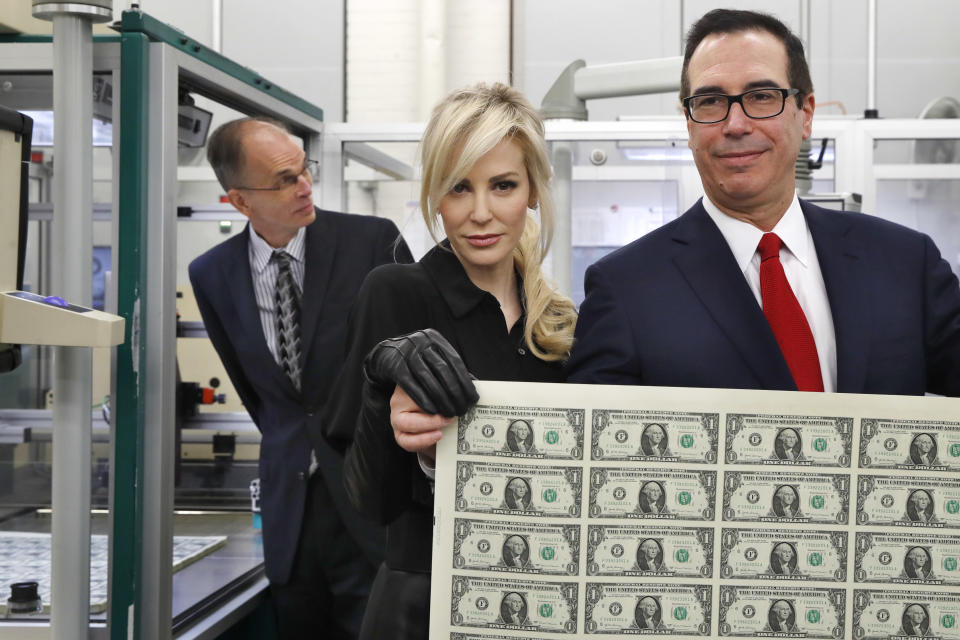We now know the real winners of the Trump tax cuts
Less than a month before the midterm elections, government data shows that business tax payments plunged in fiscal 2018, which ended in September—while individual taxpayers paid more.
President Trump and Congressional Republicans who passed the tax cuts late last year, without any Democratic support, figured voters would thank them for the extra spending money, come Election Day. But that may not happen. More people oppose the tax cuts than favor them, and 64% say they’ve seen no change in their take-home pay on account of the tax cuts.
It’s party time in the corporate sector, however, with tax cuts generating an earnings boom and keeping a shaky stock-market rally intact. Corporate profits jumped 15.4% year-over year in the first half of 2018, compared with a rise of just 6.1% in the first half of 2017, before the tax cuts went into effect. That’s the biggest semi-annual jump in profits since 2012.

Income gains for ordinary workers have been more muted, averaging just 2.8% so far this year. And while corporate profits have soared to new record highs, household earnings have only recently recovered years of losses, leaving many families feeling like they’re barely getting ahead.
The Trump tax cuts are unpopular because many people feel they benefit businesses and high earners more than middle-class workers. This year’s tax-receipt numbers back that up. Individual income-tax receipts rose from $1.587 trillion in fiscal 2017 to $1.684 trillion in 2018. That’s a 6.1% increase. Much of that is due to a growing economy and population growth.
Cut in corporate tax rate
Business-tax receipts, by contrast, plunged from $297 billion in 2017 to $206 billion in 2018, a 31% decline driven by the cut in the corporate tax rate from 35% to 21%. The portion of federal revenue that comes from business taxes has been dropping for years, and it fell from 7.5% in 2017 to 5% in 2018. Individual income-tax payments account for 41% of federal revenue.
The annual deficit rose from $666 billion in 2017 to $779 billion in 2018. And that’s with the tax cuts in effect for just eight of 12 months. The deficit could top $1 trillion in fiscal 2019, and stay above that for the foreseeable future.
Trump and his economic advisers insist that ballooning budget deficits aren’t a problem, because the tax cuts are stimulating economic growth in a way that will eventually boost federal revenues through higher incomes. But many economists say this supply-side theory has never occurred, in reality. And it’s plain in the numbers that the Trump tax cuts, so far, are adding to government debt, not reducing it.
Another worrying sign in the 2018 budget numbers is the amount spent on interest payments, which jumped 24%, from $263 billion in 2017 to $325 billion in 2018. The U.S. government has been able to borrow very cheaply during the last several years, because of super-low rates on U.S. Treasury securities. But rates are going up, which will force taxpayers to spend more on interest and, eventually, less on everything else.
“It’s an unsustainable fiscal course,” Maya MacGuineas, president of the Committee for a Responsible Federal Budget, said in a statement. “Those elected to Congress this year will face stark and difficult choices to put the debt on a downward path.” Voters may have that in mind as they decide who those people will be.
Confidential tip line: rickjnewman@yahoo.com. Click here to get Rick’s stories by email.
Read more:
Rick Newman is the author of four books, including “Rebounders: How Winners Pivot from Setback to Success.” Follow him on Twitter: @rickjnewman

 Yahoo Finance
Yahoo Finance 
